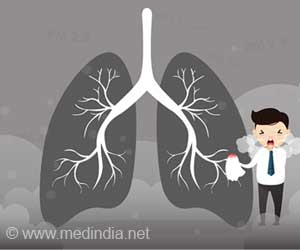A novel toolbox can help hospitals be better prepared for pandemics, heatwaves, winter pressures and natural disasters.
- Planned surgeries often get cancelled due to seasonal pressures to natural disasters and warfare
- A newly developed tool will help hospitals, internationally, improve their preparation for these external stresses
Preparing Hospitals to Handle Seasonal Pressures, Natural Disasters, Pandemics
Different hospital characteristics that made them more or less ‘prepared’ for periods of heightened demand were identified by researchers. They emphasized that health systems are under stress every year for a variety of causes, from seasonal pressures to natural disasters and warfare, while using COVID-19 as an essential example. The SPI, which assigns hospitals points based on their facilities, tools, personnel, and procedures for performing elective surgery, was developed by a group of medical professionals from 32 different nations.Surgical Preparedness Index Tool Development
The higher the final SPI score, the better a hospital is at preparing for disruptions. The readiness of each local surgical department was evaluated by 4,714 physicians working in 1,632 hospitals across 119 countries after the SPI tool’s development. Most hospitals worldwide were generally ill-prepared, which resulted in a significant decrease in the number of surgeries they could do during COVID-19. The researchers discovered that for every 100 patients on the waitlist, a 10-point rise in the SPI score resulted in four more patients having surgery in a waiting list of 100 patients.Lead author Mr James Glasbey, from the University of Birmingham, commented, “Our new tool will help hospitals internationally improve their preparation for external stresses ranging from pandemics to heatwaves, winter pressures and natural disasters. We believe it helps hospitals to get through their waiting lists more quickly and prevent further delays for patients. The tool can be completed easily by healthcare workers and managers working in any hospital worldwide – if used regularly, it could protect hospitals and patients against future disruptions.”
Professor Dion Morton, Barling Chair of Surgery at the University of Birmingham and Director of Clinical Research at the Royal College of Surgeons of England commented, “Although not all postoperative deaths are avoidable, many can be prevented by increasing investment in research, staff training, equipment, and better hospital facilities. We must invest in improving the quality of surgery around the world.”
Dr Sarah Puddicombe, Assistant Director for Global Health at NIHR Coordinating Centre, said, “This important study helps pave the way to make surgery significantly safer for thousands of patients around the world. It is just one of many exciting findings that are beginning to emerge from NIHR-funded Global Health Research Units, Groups and projects working with partners around the world. We are committed to research that contributes to the health and wealth of the nation and benefits people and communities globally.”











